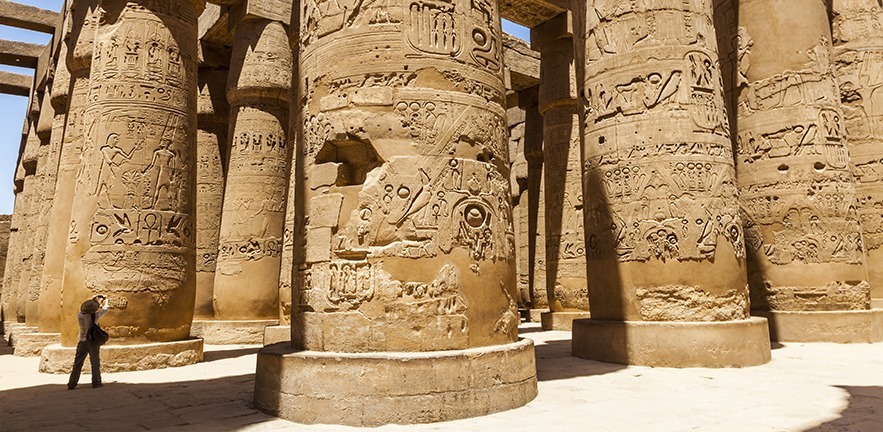Egypt’s new law restricting non-governmental organisations has created an opportunity for social enterprises to fill the void, says Isabel Brüggemann, PhD candidate at Cambridge Judge Business School.

The historic Karnak Temple in the Egyptian city of Luxor is one of the world’s most famous heritage sites, but its ancient ruins have long posed an obstacle course for people with disabilities. Happily, Egypt’s Minister of Antiquities recently announced that the entire temple, constructed over two millenniums beginning around 2055 BC, will soon be accessible through a series of wheelchair-friendly walkways.
The initiative is spearheaded by a social enterprise known as Helm (Arabic for “dream”), which focuses on improving inclusion for people with disabilities in the workplace and society at large. Helm teamed up with the Egyptian government and local authorities on the project, which could provide a boost to an Egyptian tourist industry that has been hard hit by the country’s recent political turmoil.
In fact, Helm’s very status as a social enterprise has been instrumental in the organisation’s success in Luxor amidst widespread political unrest following a 2013 military coup that ousted the country’s first freely elected president.
The government of current President Abdel Fattah al-Sisi has cracked down on non-governmental organisations through a 2017 law that severely restricts NGO activity. Human rights groups and many charities say the measure effectively bans their activities for political reasons.
Yet, the harsh NGO law has created an opening for social enterprises to help meet pressing needs, and ventures like Helm are successfully filling that void. Helm not only helps disabled tourists in Luxor, but is engaged in many other worthy projects such as the installation of textured “tactile blocks” in Cairo to help the visually impaired on pathways and in public transport stations.
Initially founded as a non-profit foundation, Helm now provides tourism consultancy services, presenting a depoliticised business case for social inclusion that has won the group legitimacy from the government. Non-profits and NGOs working on inclusion of marginalised groups could be perceived by authorities as suspicious, given their potential to gather together large groups of people with unfavourable views of the current government. Yet as social enterprises, they are not only tolerated but actively supported by the government, as examples of cross-sector collaboration show. This in turn has helped create a nascent social entrepreneurship sector in Egypt more broadly.
The societal needs are staggering: seven years after hopes of a “new Egypt” led to the resignation of longtime President Hosni Mubarak, Egypt faces such problems as 34 per cent youth unemployment, deteriorating housing, and 28 per cent of the population living below the poverty line.
Beyond Helm, other thriving social enterprises in Egypt now include Hand Over, which develops sustainable construction methods to improve housing conditions in the slums of Greater Cairo; Entreprenelle, which provides women with entrepreneurship training and networking opportunities; and GebRaa, a social enterprise aimed at supporting marginalised Egyptian artisans in finding new markets for their products.
In addition, there is a growing ecosystem for social entrepreneurship: social incubators such as Nahdet el Mahrousa and Rise Egypt support early-stage ventures; venture philanthropy organisations such as Alfanar have begun investing in promising social enterprises in Egypt and throughout the Arab World; and some universities such as the American University in Cairo have launched courses in social entrepreneurship.
As a recently published study by the directors of the Centre for Social Innovation at Cambridge Judge Business School recently noted: “Poor places are where the innovation rubber really hits the road” – and these social enterprise initiatives in Egypt are a prime example.
Like Helm, many new social enterprises began as NGOs or non-profit organisations and have now opted for the social enterprise model to gain operational flexibility in a harsh political environment. The new law, among other provisions, requires government approval of funds transferred to NGOs, which leads to cash flow problems as funds are often withheld for many months.
The emergence of social enterprise in the midst of a difficult political environment may lead the way to long-term positive change in Egypt. The movement has encouraged both civil society and governmental actors to turn toward more innovative, sustainable models to tackle the country’s huge social problems. If that helps build a more inclusive Egypt, then at least there’s a silver lining to the current political turmoil.


